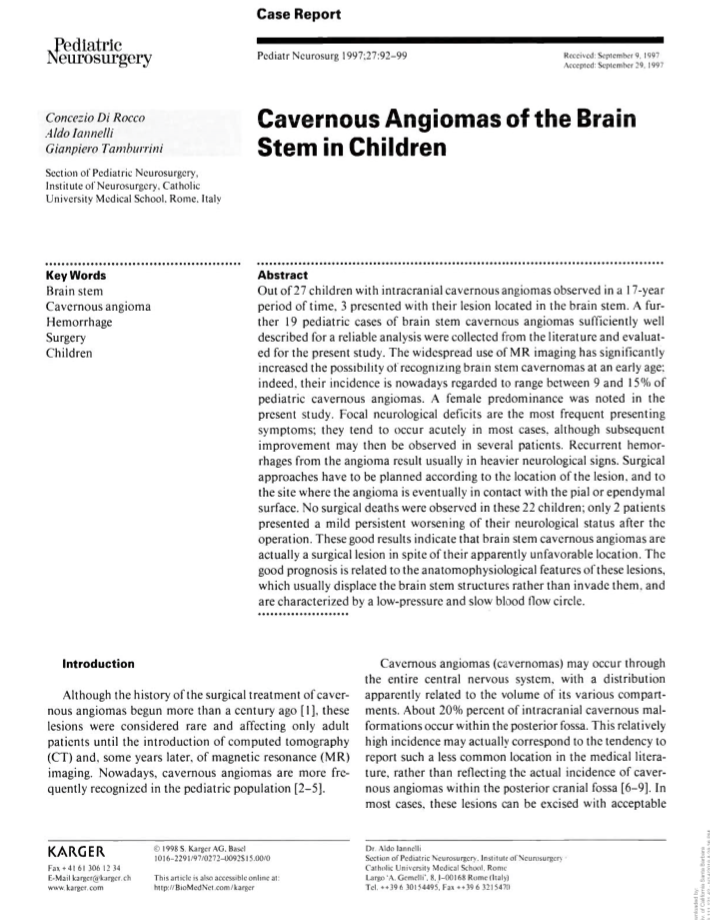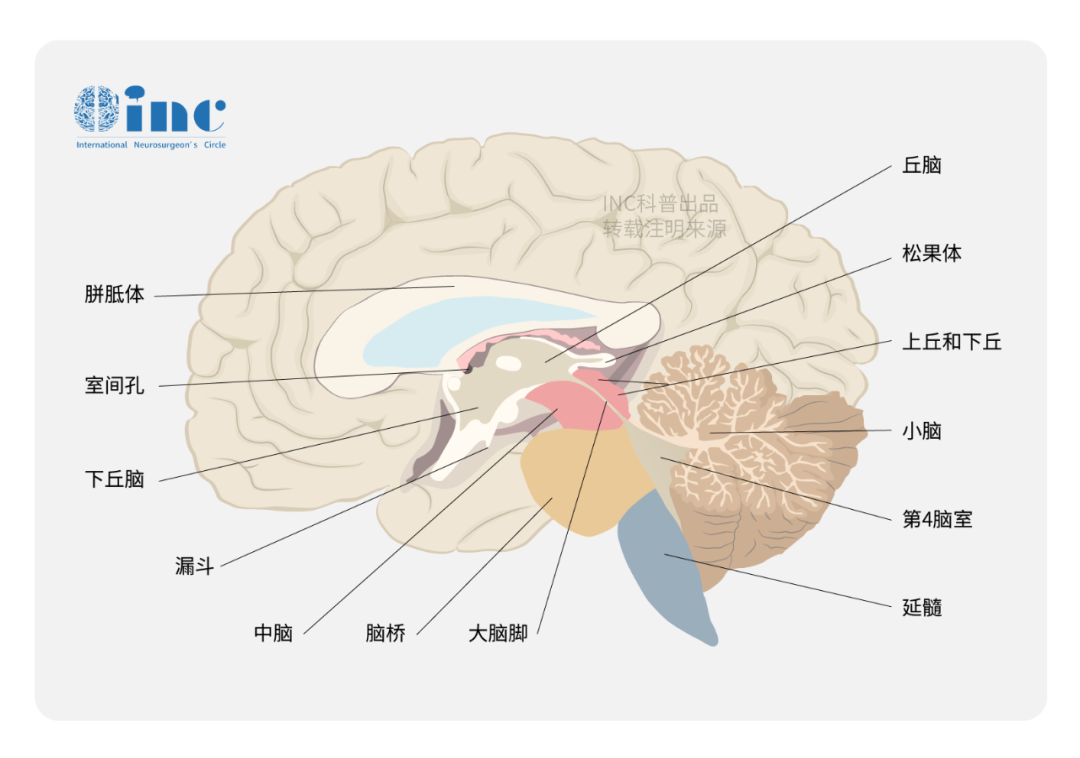Cavernous Angiomas of the Brain Stem in Children
儿童脑干海绵状血管瘤
英文摘要:
Abstract Out of 27 children with intracranial cavernous angiomas observed in a 17-year period of time, 3 presented with their lesion located in the brain stem. A further 19 pediatric cases of brain stem cavernous angiomas sufficiently well described for a reliable analysis were collected from the literature and evaluated for the present study. The widespread use of MR imaging has significantly increased the possibility of recognizing brain stem cavernomas at an early age; indeed, their incidence is nowadays regarded to range between 9 and 15% of pediatric cavernous angiomas. A female predominance was noted in the present study. Focal neurological deficits are the most frequent presenting symptoms; they tend to occur acutely in most cases, although subsequent improvement may then be observed in several patients. Recurrent hemorrhages from the angioma result usually in heavier neurological signs. Surgical approaches have to be planned according to the location of the lesion, and to the site where the angioma is eventually in contact with the pial or ependymal surface. No surgical deaths were observed in these 22 children; only 2 patients presented a mild persistent worsening of their neurological status after the operation. These good results indicate that brain stem cavernous angiomas are actually a surgical lesion in spite of their apparently unfavorable location. The good prognosis is related to the anatomophysiological features of these lesions, which usually displace the brain stem structures rather than invade them, and are characterized by a low-pressure and slow blood flow circle.
中文摘要:
在27例颅内海绵状血管瘤患儿中,有3例病灶位于脑干。从文献中收集了另外19例脑干海绵状血管瘤的儿童病例,并对其进行了评估。磁共振成像的广泛应用大大增加了早期识别脑干海绵状瘤的可能性;事实上,他们的发病率目前被认为在儿童海绵状血管瘤的9 - 15%之间。在本研究中,女性占主要部分。局灶性神经功能障碍是较常见的症状;它们往往在大多数情况下发生剧烈,尽管随后的好转可以在几个病人中观察到。血管瘤复发性出血通常导致较重的神经症状。手术入路需根据病变的位置和血管瘤较终与皮或室管膜表面接触的位置来计划。在这22名儿童中没有观察到手术死亡;有2例患者术后神经功能轻度持续恶化。这些良好的结果表明,脑干海绵状血管瘤虽然位置明显不适宜,但实际上是一种外科病变。预后良好与这些病变的解剖生理特征有关,这些病变通常是移位而非侵犯脑干结构,其特点是血压低、血流缓慢。

INC国际神经外科医生集团旗下组织国际神经外科顾问团(WANG)成员,国际神经外科联合会教育委员共同主席(2013-2017年)Concezio Di Rocco教授参与主要编写。Concezio Di Rocco教授在儿科神经外科及科领域的临床治疗经验颇为丰富。
Di Rocco教授曾受邀来我国参与了多场神经外科学术交流,将国际前沿的临床技术经验交流于我国神经外科医生,进一步拓展了国内儿科神经外科医生对国际前沿技术和治疗策略的认识。
相关经典案例
- 文章标题:儿童脑干海绵状血管瘤(Cavernous Angiomas of the Brain Stem in Children)
- 更新时间:2024-12-18 16:57:31

 400-029-0925
400-029-0925





